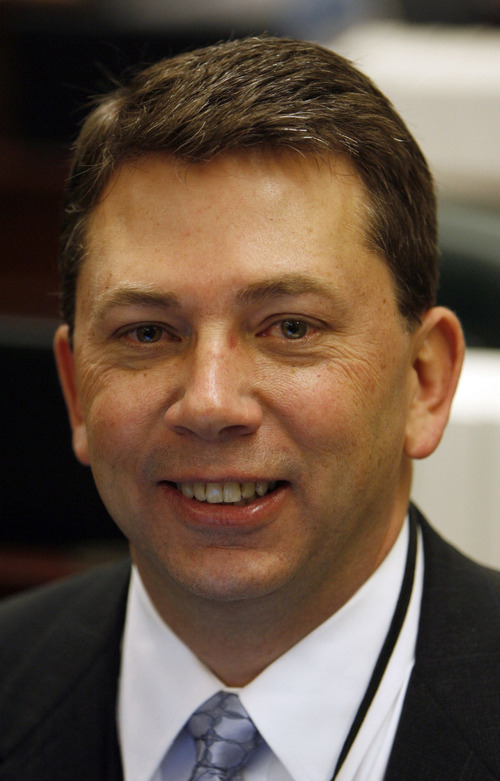This is an archived article that was published on sltrib.com in 2011, and information in the article may be outdated. It is provided only for personal research purposes and may not be reprinted.
The Justice Department's recent decision that gives states the chance to provide online gambling won't likely change Utah's blanket ban on the activity.
You can bet on that.
Rep. Stephen Sandstrom, R-Orem, will sponsor a bill in the upcoming legislative session that provides Utah with an opt-out option for any kind of online-gambling green light provided by the federal government.
"I think there is a huge difference between what we consider Republican principles and allowing for gambling," Sandstrom said. "It has a detrimental effect on society. People get addicted to gambling or drugs or pornography. I think it's completely prudent and constitutional to limit gambling."
Sandstrom's bill hasn't been released publicly, but he said Tuesday that he believes it necessary to make the bill a priority now that the Justice Department's 13-page legal opinion says states are within their rights to offer and regulate Internet gambling sites, which could range from lotteries to online poker.
The Justice Department wrote the legal opinion in September, but it was only released publicly last week and appears to partially retreat from the Unlawful Internet Gambling Enforcement Act of 2006 by saying lotteries operated by states aren't prohibited.
Sandstrom, who is running for Utah's 4th Congressional District, said he is also concerned Congress will pass more liberal online gaming laws. He wants to protect Utah from sweeping federal legislation. Sandstrom's proposal would amend his 2007 bill, which prohibited gambling in Utah. That bill passed the House, 41-30, and the Senate, 21-6, before being signed by then-Gov. Jon Huntsman — now a Republican candidate for president.
But already the state's Constitution bans games of chance as well as any sort of state-run lottery. Utah is one of just two states that bans all forms of gambling. The other is Hawaii.
House Minority Leader David Litvack, D-Salt Lake City, voted against the measure in 2007. He said he wanted to study the new language in Sandstrom's proposal before condemning it outright.
However, based on his 2007 vote, Litvack said he worried about "over-regulation" and that the state could cost itself revenue by shutting itself off from the new Justice Department's findings.
"We're losing conventions when we do things like that," Litvack said. "When we're talking about who won't come to the state of Utah, I think we have to look at the issue very carefully so as to not draw too big of a circle."
Sandstrom said the bill was necessary to insulate Utah from American Indian tribes expanding gambling on their lands because of provisions in the Indian Gaming Regulatory Act of 1988. That act provides tribes with the exclusive right to regulate gaming on their lands if the gambling isn't prohibited by federal law and occurs in a state which doesn't prohibit similar gaming activity.
Currently, tribes ranging from the Utes to the Navajos have no gambling offerings on their lands in Utah.
Forrest Cuch, chief executive officer of Ute Tribe Enterprises LLC, said Sandstrom's bill is simply misguided.
"Guys like Sandstrom always seem to be worried about giving too much economic power to tribes. That is what he fears. That the tribes will generate some wealth and will start influencing policy and culture in the area. They don't do that with General Motors or Novell or other big businesses. Why are they so concerned about these small-business opportunities," Cuch said.
But Sandstrom said gambling is a vice that brings down society.
"What we're trying to do is to hold traditional values that our state embraces — and one of those is the idea that we don't promote or condone gambling," Sandstrom said. "It affects society as a whole. People get addicted to it. They gamble the house payment away and start putting a burden on society because they can't provide for their families."
Twitter: @davemontero



